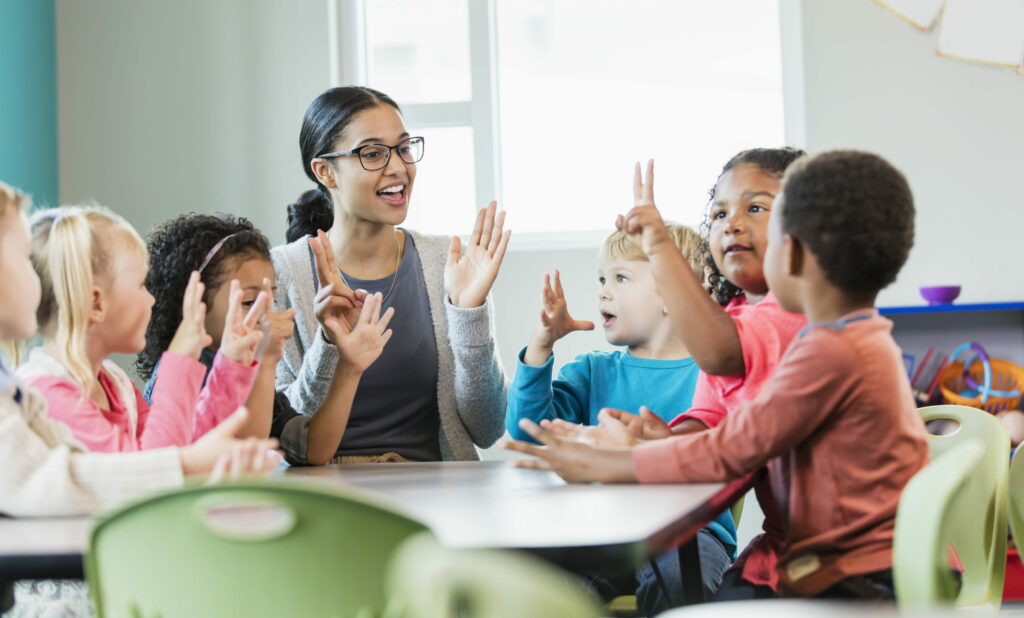What are the best international schools in the British Virgin Islands- part 2. Part 1 is here.
Education in the British Virgin Islands

There are several public schools in the British Virgin Islands as well as private schools. There is also H. Lavity Stoutt Community College located on the eastern tip of Tortola Island. This college was named after Lavity Stoutt, who was the first chief minister of the British Virgin Islands.
BVI students very often travel abroad for higher education, either at the University of the West Indies or at colleges and universities in the UK, USA or Canada. The literacy rate in the British Virgin Islands is about 98%. The open campus of the University of the West Indies is located on the territory.
International schools in the British Virgin Islands are a perfect option for expat students. There may be a local population, but the schools are designed for international students. Schools generally follow the British curriculum model, but may also be based on the French or American system.
Primary instruction can be in any language (and is usually taught in several languages), but it is usually English, French, Spanish, German, or Japanese. Many schools around the world provide similar teaching standards, making it easy to move between schools, whether in France or Vietnam. Schools often provide internationally recognized accreditation such as the International Baccalaureate.
Admission and enrollment procedures vary depending on the school. Seats are often limited and preference may be given to students of nationality. Tuition is generally expensive according to local standards but offers high teaching standards, smaller class sizes, first-class facilities, and extra-curricular activities. Some schools have boarding schools, but most have only day classes.
Accreditation
CoIS (Council of International Schools) is a not-for-profit association of international schools and higher education institutions that provides educational accreditation, teacher and manager selection services, links to higher education, management assistance, and assistance in starting new schools.
The Middle States Association of Colleges and Schools (MSA) is the leading accreditation association. The National Association of Independent Schools (NAIS) represents over 1,100 independent schools and associations in the United States and abroad. The Caribbean Association of Independent Schools (CAIS) is the accrediting body in this area.
This list contains the most popular international and bilingual schools in the British Virgin Islands: kindergartens, elementary and middle (high) schools, international baccalaureate, and other diplomas in the British Virgin Islands with fee information. Some schools may follow an American or British curriculum with English language programs.
The capital, Road Town, is located on the largest island, Tortola. It is also the site of most international schools, as well as several public schools. The islands became a separate colony in 1960 and became autonomous in 1967, but the education system is still based on the British system.
Tourism and financial services are the two pillars of the economy, and many children in this industry attend international schools. The literacy rate is relatively high at 98 percent. Education in the British Virgin Islands is compulsory for children between the ages of 5 and 17 under the Education Ordinance.
Below you will see the overviews of some of the best international schools in the British Virgin Islands.
Cedar International School

Cedar serves approximately 270 students from preschool (ages 3) through 12 grades (ages 18) and is eligible for the full IB course – Primary School Program (PYP), Secondary Education Program (MYP) and Diploma. Program (DP).
The learning community is very diverse, with students, faculty, and staff members representing over 40 nationalities. This includes 29% BVI / BVI students, 11% Caribbean, and 60% outside Caribbean, making it an excellent cross-section of local, regional and global community. However, much more than this diversity makes Cedar an international school. As an IB World School, their programs develop skills and an international mindset to prepare students for success in a rapidly changing and interconnected world.
Cedar is committed to providing a sophisticated international education that benefits from the rich resources of the BVI community and is complemented by an extensive program of collaborative learning activities that enhance the school experience. Cedar students are athletes and artists, problem solvers and innovators, travelers around the world, community volunteers, and many more. They embody the traits of an IB student profile. They are citizens of the world and are ready to change the world for the better.
As a World School for International Baccalaureate (IB), Cedar provides an internationally accredited and highly regarded education that is focused on student requests and leads to the development of critical skills: how to solve problems, how to think critically, how to find information, and assess its authority, how to ask the right questions, how to be an independent student, how to collaborate effectively with others. These are skills that prepare the students for life outside of school.
The development of these skills begins with the school’s youngest students in the elementary school curriculum (Kindergarten-Grade 5), continues through high school (grades 6-10), and culminates in their IB Diploma Program (Grades 11-12).
Cedar has an impressive track record of success. The IB students regularly earn passing and average scores above the world average. Their graduates are now studying at some of the leading universities in the US, UK, and Canada.
Quality teachers
The school’s teachers are highly qualified professionals in their field. More than 60% have a master’s degree or another degree. Many are qualified program evaluators, workshop leaders, and MYP and DP examiners. A diverse group, they come from 16 different countries and bring experiences from many others, providing a diverse cultural perspective in the classroom. When you combine this with a 7: 1 student-to-teacher ratio, you have a powerful recipe for success!
Technology
With SMART whiteboards in every classroom, a Chrome Bookmobile lab and an iPad for elementary school students, a MacBook for middle school students, and high-speed wireless Internet access on campus, technology seamlessly integrates into the classroom, allowing the learning environment to reflect the world in it, in which the students will live and work.
Campus and Opportunities for Extracurricular Activities
The school’s facilities with top-notch science labs, comprehensive arts, music, drama, and design programs, culinary center, wood workshop, garden, playgrounds, skate park, sports court, and basketball court are all located on campus, maintain a balanced, comprehensive educational experience. The students are actively involved in sports, arts, services, and after school. Many of them represent the British Virgin Islands in sports such as football, tennis, squash, rugby, and sailing.
Globally relevant curriculum
The IB program is world-renowned and internationally accredited. It is based on international standards, focuses on skill acquisition rather than content, and is recognized by universities around the world.
Virgin Islands Montessori School & Peter Gruber International Academy (VIMSIA)

Another best international schooling the BVI is the VIMSIA. In 1963, the concept of a Montessori School in the Virgin Islands captured the imagination and endorsed a group of St. Thomas’s parents. In January 1964, a one-room building with a preschool class for 12 students arose.
Over the years, the school has grown steadily to meet the needs of their St. Thomas / St. John Community. Today, a beautiful 7 hectare campus offers toddlers up to grade 12 and is accredited by the Montessori Association International (AMI) for the Montessori Junior School, and our International Academy (grades 7-12) is authorized by the International Baccalaureate Organization.
The first class of VIMSIA Elementary School was located on a half-acre of land generously donated by Bill and Jim Evans (both of whom had children in this class). The early development focused on complementary preschool classes.
In the early 70’s, junior and elementary grades were added, which propelled their program up to sixth grade.
The Montessori School of the Virgin Islands and the Peter Gruber International Academy (VIMSIA) are committed to providing education for a Montessori life, reflecting the richness of the diverse culture and adhering to international college preparation standards.
VIMSIA’s educational concept allows the students to experience the joy of learning while striving for excellence. It stimulates the initiative and curiosity inherent in every person. The school provides an atmosphere that guides each student’s progress towards their intellectual, social, emotional, and physical potential, with a focus on nurturing the human spirit. They emphasize respect for ourselves, others, the Virgin Islands community, and the environment.
From toddler to sixth grade, VIMSIA is dedicated to the philosophy and teaching methods of Montessori in accordance with Montessori International (AMI) standards. Peter Gruber International Academy is student-centered and based on the pedagogy of the International Baccalaureate. The goal is to provide the fullest possible development and the highest level of education for each student. The school is non-denominational and non-discriminatory and welcomes students from all backgrounds.
VIMSIA is an environmentally conscious school and they are constantly improving the environmental initiatives. Leading by example is one of the best ways to teach the students the importance of being responsible for the environment. Teachers are encouraged to support their environmental programs whenever possible. This includes using the green campus as an environmental education tool.


